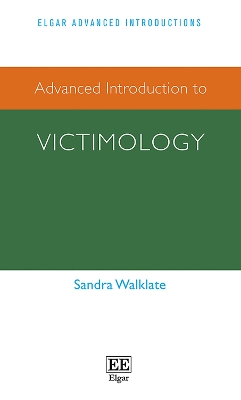Elgar Advanced Introductions
1 total work
This Advanced Introduction charts the growth and development of victimology since the Second World War. Exploring competing theoretical perspectives, data sources, and policy emphases, it presents a critical overview of the field and suggests future directions of travel for researchers. Topics covered include trauma creep, witnessing pain, gaining knowledge of suffering, compensation, the role of offenders, and victim-centred justice.
Key Features:
- Discusses victimology in its historical context
- Considers the ethical dilemmas of studying victimisation and suffering
- Adopts a global outlook, incorporating perspectives from the Global South
- Explores positivist, radical, critical, cultural, narrative, and feminist victimology
- Reviews key policy developments including restorative justice and reconciliation
Examining key concepts in victimology and placing them in their policy context, this Advanced Introduction will be essential reading for scholars and students in criminology, sociology, social policy, and criminal justice. It will also prove a useful guide for activists and policy-makers seeking to centre victims in their work.
